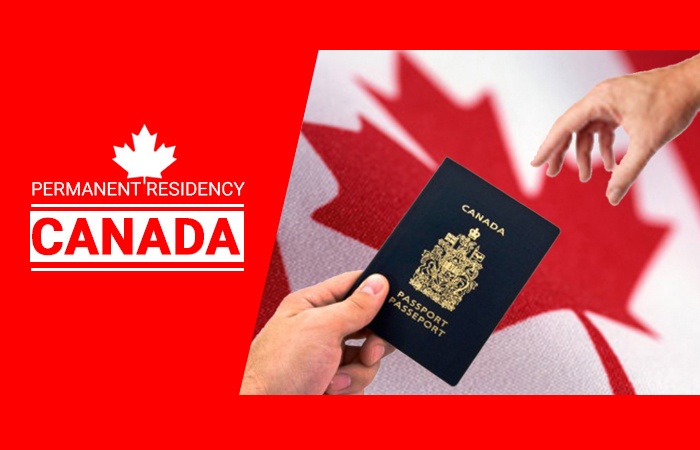Obtaining permanent residency (PR) in Canada is a goal for many individuals seeking to settle in one of the most welcoming countries in the world. Canada offers numerous pathways to PR, including Express Entry, Provincial Nominee Programs (PNPs), family sponsorship, and more. However, an important aspect of the immigration process is understanding the processing time involved in each application type. The processing time for Canada PR can vary depending on the immigration program, the applicant’s country of origin, the completeness of the application, and several other factors.
In this article, we will discuss the general processing time for the most common immigration pathways to Canada, factors that influence the duration, and what applicants can do to ensure their application is processed in a timely manner.
Canada PR Processing Time Overview
The processing time for a Canadian PR application refers to the length of time it takes for Immigration, Refugees and Citizenship Canada (IRCC) to process a complete application. This time starts when the IRCC receives the complete application and ends when a decision is made on the applicant’s PR status.
The processing times vary based on several factors, including the type of immigration program, the volume of applications, and the specific details of an applicant’s case. IRCC regularly updates its official website with the current estimated processing times for each program. However, it’s important to note that these are only estimates and actual processing times may be longer or shorter.
1. Express Entry Processing Time
The Express Entry system is one of the fastest ways to obtain permanent residency in Canada, particularly for skilled workers. According to IRCC, most complete Express Entry applications are processed within six months from the date of submission. This processing time applies to candidates who have received an Invitation to Apply (ITA) for PR and have submitted all required documents.
Several factors can affect the processing time for Express Entry applications. For example, if an applicant submits an incomplete application or fails to provide accurate information, this can delay the process. On the other hand, candidates who submit all necessary documents, including police certificates and medical exams, may experience faster processing times.
2. Provincial Nominee Program (PNP) Processing Time
For those applying for permanent residency through a Provincial Nominee Program (PNP), processing times can vary significantly depending on the specific province or territory and whether the application is submitted through Express Entry or non-Express Entry streams.
When an individual applies for a PR visa under the PNP’s Express Entry stream, the federal processing time is typically six months, similar to the standard Express Entry processing time. However, applicants who go through the non-Express Entry stream may experience longer processing times, which can range between 15 to 19 months, as these applications go through both the provincial and federal stages.
The processing time for PNP applications depends largely on the particular province’s own system, the volume of applications received, and how quickly provincial authorities issue nominations.
3. Family Sponsorship Processing Time
Family sponsorship is another popular pathway to Canadian permanent residency, allowing Canadian citizens and permanent residents to sponsor their close family members. The processing time for family sponsorship applications can vary depending on the type of relationship between the sponsor and the sponsored person.
For spousal sponsorship, the estimated processing time is about 12 months, although it can take longer in certain cases, such as if the applicant is from a high-application-volume country or if additional information is required. For parents and grandparents, the process takes longer, with estimated processing times ranging from 24 to 36 months, depending on the number of applications and specific case details.
4. Other Programs Processing Time
Other programs for obtaining Canada PR, such as the Atlantic Immigration Program (AIP), Rural and Northern Immigration Pilot (RNIP), and Quebec-selected Skilled Worker Program (QSWP), have varying processing times based on the stream and whether they are linked to Express Entry.
For instance, the Atlantic Immigration Program, which is designed to attract skilled workers to Canada’s Atlantic provinces, typically has a processing time of around 12 months. Quebec’s skilled worker program, which operates independently of the federal system, can take anywhere from 12 to 24 months, depending on the case.
Factors That Influence PR Processing Time
While IRCC provides estimated processing times, several factors can influence how long it takes for a PR application to be approved. Some of the most common factors include:
- Completeness of the Application: An incomplete application can significantly delay processing times, as IRCC may require additional documents or clarification. It’s crucial to ensure that all forms are properly filled out and that all required documents, including police certificates and medical examinations, are submitted.
- Verification of Information: If IRCC needs to verify details such as work experience, education credentials, or family relationships, this can add to the overall processing time. Background checks, especially for individuals from certain countries, may take longer.
- Volume of Applications: The number of applications received by IRCC can affect how quickly your PR application is processed. For instance, if a high volume of applications is received for a particular program, processing times may increase.
- Country of Origin: Applicants from certain countries may experience longer processing times due to various reasons, such as difficulties in obtaining police certificates, language barriers, or more thorough security checks.
- Additional Documentation Requests: Sometimes, IRCC may request additional information or documents to support your application, which can lead to delays. It’s important to respond promptly to such requests to avoid further processing delays.
Tips to Minimize Processing Delays
Although some factors influencing processing time are beyond the applicant’s control, there are steps you can take to help ensure your PR application is processed as quickly as possible:
- Submit a Complete Application: Double-check all documents before submitting your application to ensure everything is accurate and complete. Missing documents or incorrect information can lead to delays.
- Respond to Requests Promptly: If IRCC requests additional documents or information, provide them as soon as possible to avoid further delays.
- Keep Documents Up to Date: Ensure that documents such as police certificates and medical exams are current when you submit your application. Expired documents may cause delays.
- Use an Immigration Consultant: If you are unsure about any part of the application process, consider hiring a licensed immigration consultant or lawyer to assist with your application. They can help ensure that your application is complete and accurate.
Conclusion
Understanding the processing time for Canada PR is essential for anyone considering immigrating to Canada. While processing times vary depending on the program and specific case, most applications are processed within a reasonable timeframe, provided all documents are accurate and complete. By following best practices and staying informed about the latest processing updates from IRCC, applicants can help ensure their pathway to Canadian permanent residency is as smooth as possible.




